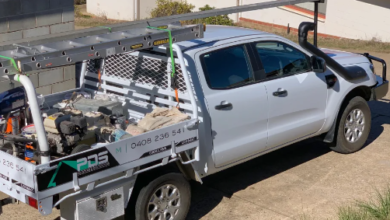How to Budget for a Move

Moving to a new home is an exciting milestone, but it can also be a costly endeavor if not properly planned. Without a well-thought-out budget, unexpected expenses can pile up, creating unnecessary stress. Whether you’re relocating across town or to an entirely new city, understanding the financial aspects of moving with Colonial Van Lines is essential. A solid budget ensures you stay on track financially while also allowing for a smoother transition. By carefully planning each step, you can manage your expenses effectively and avoid unpleasant surprises.
Assess Your Moving Costs
The first step in creating a moving budget is to determine all potential costs associated with the move. Moving expenses typically include hiring professional movers, renting a truck, purchasing packing supplies, and covering utility transfers. If you’re moving a long distance, you may also need to account for travel expenses such as fuel, lodging, and food. Additionally, unexpected costs like repairs in your old home or deposits for your new place should also be factored into your budget. Being aware of these expenses in advance allows you to prepare accordingly and avoid last-minute financial stress.
See also: Innovative Hydration: The Role of Proton Exchange Membrane Technology in the H2Nano Bottle
Compare DIY vs. Professional Moving Services
Deciding between a DIY move and hiring professional movers is a major financial consideration. While renting a truck and moving on your own may seem like the cheaper option, it comes with added labor, time, and potential risks. Professional movers, on the other hand, can handle the heavy lifting and logistics, but their services come at a premium. It’s important to request multiple quotes from moving companies and compare the costs with a DIY move, factoring in fuel, truck rental fees, and additional equipment costs. By weighing the pros and cons, you can determine the best option that suits both your budget and your needs.
Account for Packing and Supplies
Packing supplies may seem like a minor expense, but they can add up quickly. Boxes, packing tape, bubble wrap, and protective materials are all necessary to ensure your belongings are transported safely. To cut down on costs, consider using free or secondhand boxes from local stores or online marketplaces. Many people also find creative ways to pack using towels, blankets, and clothing as protective padding. Creating an inventory of necessary supplies and estimating costs beforehand will help prevent overspending and ensure you have everything you need for a smooth move.
Plan for Deposits and New Home Expenses
One commonly overlooked aspect of moving is the upfront costs associated with settling into a new home. If you’re renting, you may need to provide a security deposit, first and last month’s rent, and application fees. Homebuyers, on the other hand, might face closing costs, inspections, and potential renovations. Additionally, setting up utilities, internet, and other essential services often comes with activation fees. By including these costs in your budget, you can ensure you’re financially prepared to move in without unnecessary delays or stress.
Factor in Travel and Temporary Housing Costs
If your move involves traveling a significant distance, it’s important to budget for transportation and lodging. Gas prices, tolls, and meals on the road can add up quickly, especially for long-haul moves. If your new home isn’t ready immediately, you may also need to arrange temporary housing, which can be an unexpected expense. Booking accommodations in advance, budgeting for meals, and finding cost-saving options such as staying with friends or family can help manage these costs. Proper planning ensures that your journey is as stress-free and affordable as possible.
Create an Emergency Fund
Even with careful planning, moving often comes with unexpected expenses. Broken furniture, delayed shipments, or last-minute service fees can throw off your budget if you’re not prepared. Setting aside a contingency fund can provide a financial cushion for these unforeseen costs. A good rule of thumb is to allocate at least 10% of your total moving budget for emergencies. Having this extra money on hand will give you peace of mind and prevent financial strain if any unexpected situations arise.
Use Cost-Saving Strategies
There are many ways to save money during a move with a little creativity and planning. Decluttering before you pack can reduce the volume of belongings, ultimately lowering transportation costs. Selling or donating items you no longer need not only lightens the load but can also generate extra cash to offset moving expenses. Moving during off-peak seasons or weekdays can also lead to better rates on moving services and rental trucks. Additionally, some employers offer relocation assistance, so it’s worth checking if your job provides any reimbursement for moving costs.
Track Your Expenses and Stay on Budget
Once you’ve established your budget, tracking your expenses throughout the moving process is essential. Using a spreadsheet, mobile app, or budgeting tool can help you keep a clear overview of your spending. Regularly reviewing your expenses ensures you stay within your financial plan and allows you to adjust as needed. By keeping a close eye on costs, you can avoid overspending and make necessary modifications to stay financially stable during the move. A well-monitored budget helps you transition smoothly into your new home without unnecessary financial burdens.
Final Thoughts
Budgeting for a move requires careful planning, but with the right approach, it can be a manageable process. By assessing all potential costs, comparing moving options, and incorporating cost-saving strategies, you can stay within your financial means. Factoring in deposits, travel, and unexpected expenses ensures that you’re fully prepared for every aspect of the transition. Tracking your spending and maintaining a financial cushion will give you the confidence to handle any surprises along the way. With a well-structured budget, you can focus on settling into your new home without financial stress weighing you down.





